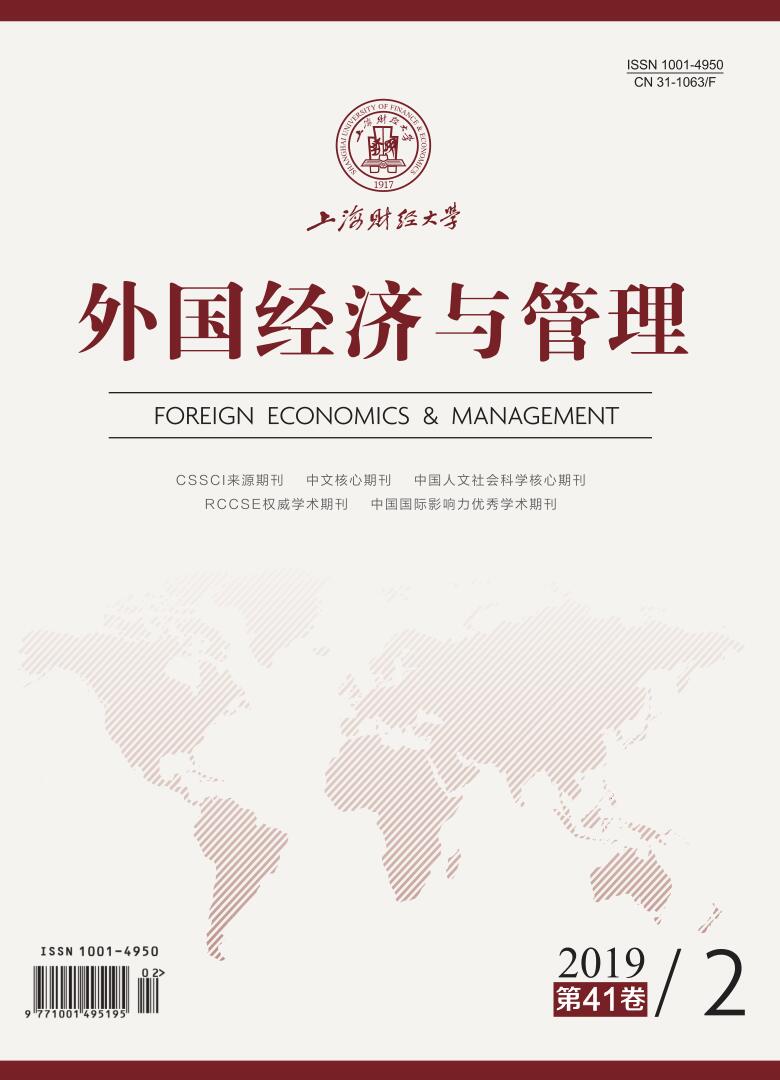Due to the proprietary costs of disclosure, prior studies argue that industry concentration is associated with corporate disclosure. In more concentrated industries, firms are less likely to provide specific management forecast and separate business segment disclosure, because the related disclosure is more potentially useful to firms’ product market rivals. It can also be argued that the information value is greater in more concentrated industries. Industry expert analysts tend to specialize in a specific industry, and thus they have superior ability in aggregating information from other individual firms in the industry. The disclosure by other individual firms in concentrated industries provides more substantive and less noisy information about future industry demands, and can play a larger role in earnings forecast. It is thus possible that in concentrated industries, industry expert analysts are more prone to take advantage of the joint knowledge of the firm and its peers to improve the processing of financial information and forecasting performance. To test this theoretical prediction, our paper empirically investigates how analysts’ industry expertise affects their forecasting performance under varying degrees of industry concentration and its underlying mechanisms. Based on a sample of Chinese A-share listed firms over the period 2008 to 2015, we find that the relative earnings accuracy of forecast by analysts with high industry expertise is significantly better than that by other analysts. Then we examine the impact of industry concentration on our analysis, and find that analysts’ industry expertise translates into more accurate forecast in more concentrated industries. Furthermore, to understand the underlying channels driving the results, we investigate how firms’ proprietary costs and information disclosure quality relate to the complementary effect of industry concentration and analysts’ industry expertise on forecasting performance, and find that this complementary effect is mainly found in firms with lower information disclosure transparency, higher proprietary costs and higher product market predation. Taken together, these findings suggest that in poorer information environment of concentrated industries, the value-relevant information contained in disclosure by peer companies is more likely to be used by industry expert analysts, and hence, they have better forecast accuracy. Our paper highlights the importance of analysts’ industry expertise for their earnings forecast, especially in concentrated industries, extending our understanding of the factors affecting analysts’ forecast accuracy.
 / Journals / Foreign Economics & Management
/ Journals / Foreign Economics & ManagementForeign Economics & Management
JIN Yuying, Editor-in-Chief
ZhengChunrong, Vice Executive Editor-in-Chief
YinHuifang HeXiaogang LiuJianguo, Vice Editor-in-Chief
Industry Concentration, Analysts’ Industry Expertise and Forecast Accuracy
Foreign Economics & Management Vol. 41, Issue 02, pp. 125 - 138 (2019) DOI:10.16538/j.cnki.fem.2019.02.010
Summary
References
Summary
[1] Dong Wang, Chen Jun, ChenHanwen.Does Internal Control Quality Affect Analyst Behavior?: Evidence from China[J]. Journal of Financial Research,2017(12):191-206.
[2] Guan Zongping, Huang wenfeng. Securities Analysts'Characteristics,Conflict of Interest and Accuracy of Earnings Forecast[J].China Accounting Review,2012,10(04):371-394.
[3] Liu Yongze,Gao Song. Disclosure Quality,Analysts'Industry Expertise and Forecast Accuracy—Empirical Evidence from Chinese Shenzhen A—share Stock Market[J]. Accounting Research,2014(12):60-65.
[4] Liu Yongze,Gao Song. AnalystsIndustry Expertise, Forecast Accuracy and Market Reaction[J].Economic Management Journal, 2015(6):87-97.
[5] Wang Xiongyuan, Peng Xuan. Does Stable Relationship with Customers Improve the Analyst Forecasts about Suppliers?[J]. Journal of Financial Research,2016(5):156-172.
[6] Wang Xiongyuan, Yu Changqiu. Proprietary Cost andVoluntary Information Disclosure: Analysis Based on Customer Information Disclosure[J]. Journal of Finance and Economics,2014, (12): 27-38.
[7] Zhao Liangyu, Li Zengquan, Liu Junxia. The Managers’ Preferences, the Optimization in the Evaluation of the Investment Level and the Obtainment of the Private Information[J]. Management World, 2013(4):33-47.
[8] Ali A, Klasa S, Yeung E. Industry concentration and corporate disclosure policy[J]. Journal of Accounting and Economics, 2014, 58(2-3): 240-264.
[9] Bernard D. Is the risk of product market predation a cost of disclosure?[J]. Journal of Accounting and Economics, 2016, 62(2-3): 305-325.
[10] Bradley D, Gokkaya S, Liu X. Before an analyst becomes an analyst: Does industry experience matter?[J]. The Journal of Finance, 2017, 72(2): 751-792.
[11] Brown L D, Call A C, Clement M B, et al. Inside the “black box” of sell‐side financial analysts[J]. Journal of Accounting Research, 2015, 53(1): 1-47.
[12] Ellis J A, Fee C E, Thomas S E. Proprietary costs and the disclosure of information about customers[J]. Journal of Accounting Research, 2012, 50(3): 685-727.
[13] Guan Y Y, Wong M H F, Zhang Y. Analyst following along the supply chain[J]. Review of Accounting Studies, 2015, 20(1): 210-241.
[14] Haw I M, Hu B B, Lee J J, et al. The impact of industry concentration on the market’s ability to anticipate future earnings: International evidence[J]. International Journal of Accounting & Information Management, 2016, 24(4): 443-475.
[15] Hilary G, Shen R. The role of analysts in intra-industry information transfer[J]. The Accounting Review, 2013, 88(4): 1265-1287.
[16] Hoberg G, Phillips G. Product market synergies and competition in mergers and acquisitions: A text-based analysis[J]. The Review of Financial Studies, 2010, 23(10): 3773-3811.
[17] Kadan O, Madureira L, Wang R, et al. Analysts' industry expertise[J]. Journal of Accounting and Economics, 2012, 54(2-3): 95-120.
[18] Keskek S, Myers L A, Omer T C, et al. The effects of disclosure and analyst regulations on the relevance of analyst characteristics for explaining analyst forecast accuracy[J]. Journal of Business Finance & Accounting, 2017, 44(5-6): 780-811.
[19] Lehavy R, Li F, Merkley K. The effect of annual report readability on analyst following and the properties of their earnings forecasts[J]. The Accounting Review, 2011, 86(3): 1087-1115.
[20] Xu N H, Chan K C, Jiang X Y, et al. Do star analysts know more firm-specific information? Evidence from China[J]. Journal of Banking & Finance, 2013, 37(1): 89-102.
Cite this article
Xie Guanghua, Hao Ying, Li Sile. Industry Concentration, Analysts’ Industry Expertise and Forecast Accuracy[J]. Foreign Economics & Management, 2019, 41(2): 125-138.
Export Citations as:
For




 , 1
, 1 9064
9064  9225
9225

